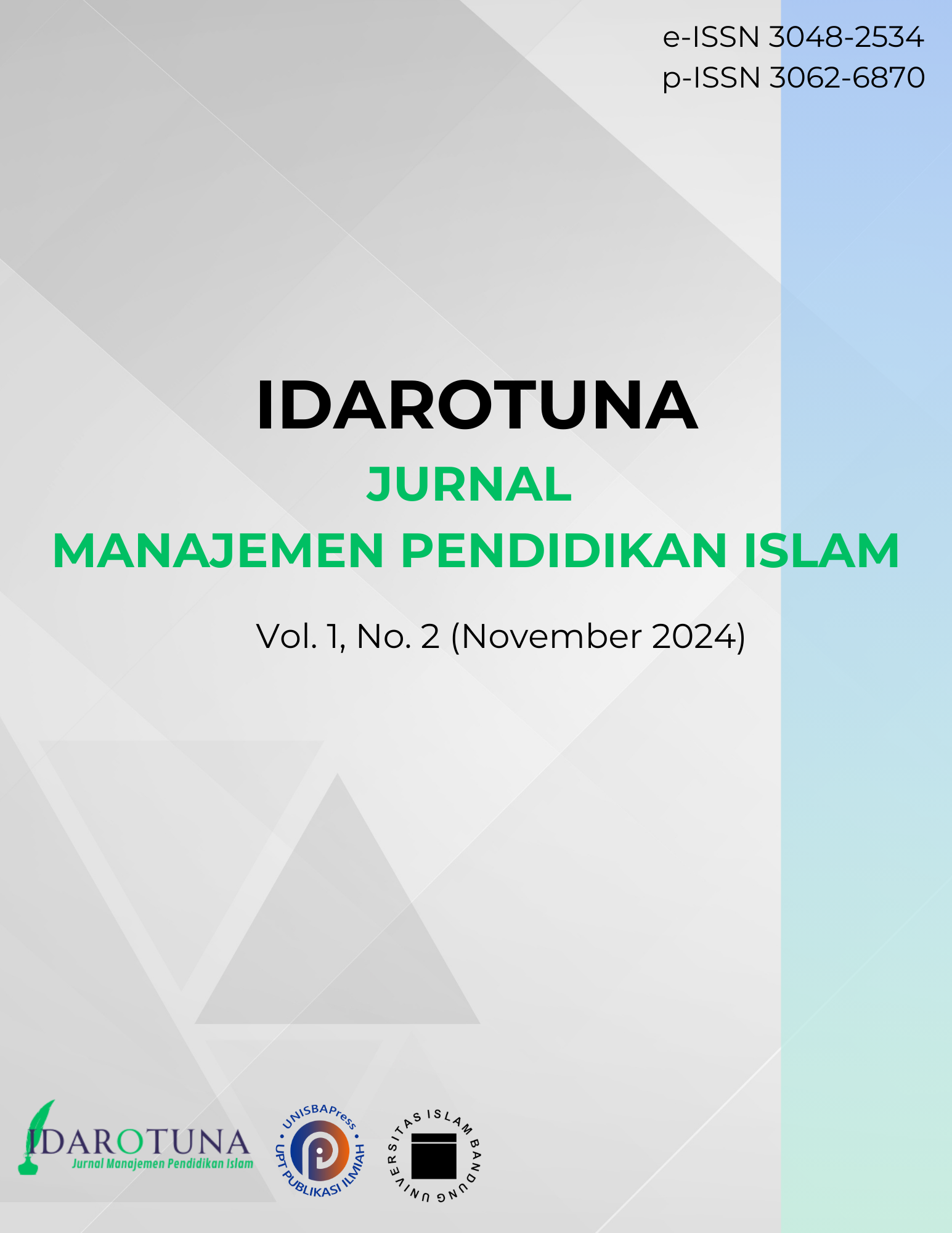Implementasi Pendidikan Karakter Baik dan Kuat di SMP Negeri 9 Bandung
IMPLEMENTASI PENDIDIKAN KARAKTER BAIK DAN KUAT BAKU DI SMP NEGERI 9 BANDUNG
DOI:
https://doi.org/10.29313/idarotuna.v1i2.6145Keywords:
pendidikan karakter, implementasi, 7 Cinta, SMP Negeri 9 BandungAbstract
The purpose of this study was to analyze the implementation of "Good and Strong" character education in SMP Negeri 9 Bandung, which includes planning, implementation, evaluation, supporting and inhibiting factors, and the results of the implementation. The study was conducted through field observation methods, documentation, and interviews with the Principal, Curriculum, PAI Teachers, BK Teachers, and student representatives. The results of the study indicate that character education planning is carried out systematically by integrating good character values (honesty, sincerity, humility) and strong character values (courageous, disciplined, tough) into formal and non-formal curricula. The "7 Loves" approach (knowledge, mosque, alms, dhikr, Al-Qur'an, fasting, and tahajud) is the main foundation in the formation of student character. Implementation is carried out through daily activities, such as the habit of reading the Qur'an, praying in congregation, and social action, as well as special programs such as daily literacy, tahsin-tahfidz, and active involvement of parents in supporting the implementation of character values at home. Evaluation is carried out collaboratively through direct observation, assessment of attitudes in report cards, student reflection, and involvement of teachers and parents, to ensure the effectiveness of the program. Supporting factors for implementation include complete facilities and infrastructure, cooperation between schools, and the role of the family as a moral foundation. However, there are inhibiting factors such as lack of parental attention, limited facilities, suboptimal ISOMA time management, and internal (student intentions) and external (environmental) obstacles. The implementation results showed an increase in positive attitudes and behaviors in 85% of students from a total of 1006 students, including honesty, discipline, and responsibility. This program has proven effective in forming a generation with integrity, resilience, and high morals, although around 15% of students still need a sustainable approach.
Downloads
Published
How to Cite
Issue
Section
License
Copyright (c) 2024 Islamy Nurfadlilah, Ikin Asikin, Helmi Aziz

This work is licensed under a Creative Commons Attribution-NonCommercial-ShareAlike 4.0 International License.









